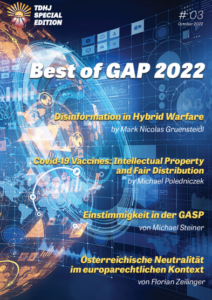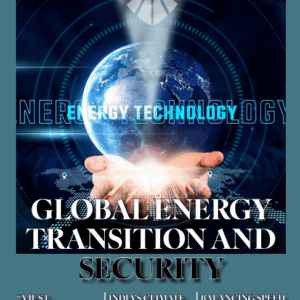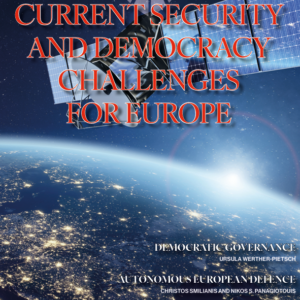
Author: Mark Nicolas Gruensteidl has been studying economics, law, political science, and IT-related subjects interdisciplinary at different places worldwide. He is currently pursuing a Master of Laws in EU and International Business Law with a focus on digital, intellectual property, privacy, communication, and technology law. In addition, he holds an MA in International Relations, a graduate degree in Industrial Engineering, and a BA in Film, TV, and Media Production with an emphasis on business and law. The views contained in this article are the author’s alone.
Abstract: Modern information and communication technologies and an environment of rapid information flows have strengthened the power of disinformation. Based on the rational choice theory, this article investigates in what sense disinformation can be understood as part of the hybrid warfare toolbox. To achieve this aim, it presents a classification of so-called ‘fake news’ and continues by elaborating on the development from the networked individual to digital natives, the role of social engineering, and cognitive hacking with regard to security concerns, as well as on the consequences of the infodemic caused by COVID-19. Following MPECI (Military, Political, Economic, Civilian, and Informational), the analytical framework for the analysis of hybrid warfare scenarios, two exemplary case studies are presented. While the first case study deals with the hacking of the European Medicines Agency in 2020, the second addresses the United States Capitol attack in 2021. The latter focuses on the role of social media and Facebook in that assault.
Bottom-line-up-front: Disinformation can be understood as part of the hybrid warfare toolbox in the sense that it is a means of attack against a vulnerability to create a certain effect or outcome. The reliance on communication technologies and the availability of information in today’s world make it a powerful tool of hybrid warfare that can be used as a social engineering method in the form of cognitive hacking.
Problem statement: In what sense can disinformation be understood as part of the hybrid warfare toolbox and how does it represent a threat to democratic societies?
So what?: Disinformation affects us all in today’s highly interconnected global society. Hybrid threats in the form of different types of ‘fake news’ represent a fundamental problem, especially for democratic states, as they can corrupt the individual democratic decision of a voter. When applying countermeasures, however, fundamental rights such as the freedom of expression and information, as guaranteed in Article 10 of the European Convention on Human Rights (ECHR) and Article 11 of the Charter of Fundamental Rights of the European Union (CFREU), shall be respected.




